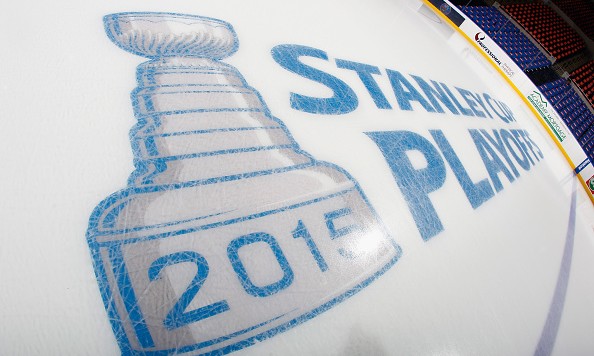The heartbeat of the playoffs is the beautiful creation called the 7-Game Series. We take it for granted, at times, but the genius of it is everlasting; it provides a rhythm, a consistency, to the madness of the postseason.
Since the dawn of the Original 6 era in 1942, there have been 614 completed 7-Game Series in NHL history (including this year’s Winnipeg-Anaheim series that ended last night.) There’s a fantastic website that provides a wealth of information about 7-Game Series in hockey, baseball, and basketball. Whowins.com is an invaluable tool for numbers-inclined hockey fans come playoff time. However, there are pieces of information it doesn’t include.
I sought to know the length of the average 7-Game Series since 1942, so I transferred the series lengths from this table into a spreadsheet and have been playing around with the data. Here are the overarching takeaways:
- The average length of 7-Game Series since 1942 is 5.64 games, which is about what we’d expect. That number is only slightly above the center point of our range of outcomes (4 and 7).
- HOWEVER, the average 7-Game Series has been getting longer.
And here’s the data broken down:
- Through the first 100 7-Game Series since 1942 (series #100 was during the 1971 Quarterfinals), the average series length was 5.43 games.
- During the next stretch of 100 7-Game Series (which takes us to the 1985 Semifinals), the average series length was 5.4 games.
- The next 100 7-Game Series (which takes us to the first round in 1993) saw the average game length jump to a whopping 5.74, which meant the average series was closer to 6 games than to 5 for the first time.
- The next run of 100 series takes us to the 1999 Quarterfinals and averaged 5.68 games.
- The next 100 series take us to the 2007 first round and averaged 5.77 games.
- Series #501-614 (ending with the Anaheim-Winnipeg series from this year) averaged an unprecedented 5.82 games. Whereas each previous sample of 100 series saw 6 games as the most frequent series length, this most recent set had 7 games as the mode.
Of course, the natural reaction is to suggest “parity,” as the reason that series have been getting longer. The range of team talent from 1942-1967, with only six teams in the league, was significant. So the best teams more commonly dispatched of worse teams in four or five games. But the biggest increases in average series length don’t correspond to expansion.
The third stretch of 100 series I studied (from 1985-1993), during which the average series length jumped from 5.4 to 5.74 games includes only a few years of expansion. Ottawa, Tampa Bay, Anaheim, San Jose, and Florida entered the league during that stretch, but none of those teams did so until 1991, toward the end of that timeframe. And in this most recent stretch, in which the average series length increased to 5.82 games, there was no expansion whatsoever.
So, why the huge increase in series length? If you’re a conspiracist, you might suggest the increase in TV revenue implicitly encourages the NHL to foster longer series. The coldly calculating observer would probably suggest it’s a fluke, borne on random statistical variance. Maybe the gap between teams is smaller than ever these days thanks to analytic movements.
More than anything, I think it’s a combination of the gap closing between teams and the variant nature of the playoffs. Crazy things are bound to happen when you boil hockey down to a 7-Game Series. Random luck is going to play a bigger role, and that luck, since about 2007, has evened the playing field in the playoffs so that 7 games is the most frequent series length since 2007.

